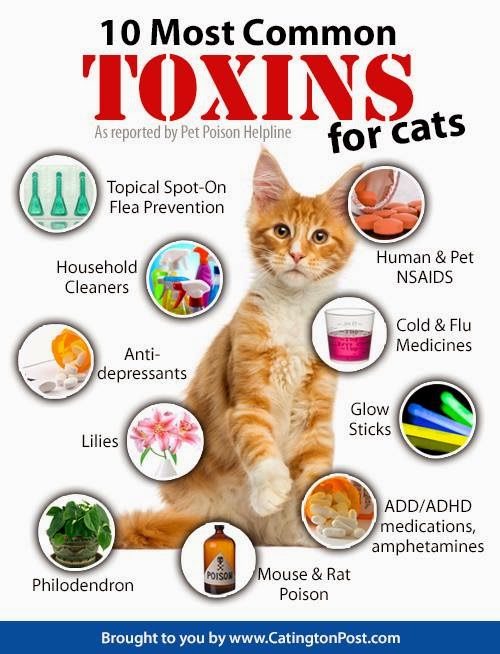Cats are curious creatures that love to explore their surroundings. However, their inquisitive nature can sometimes lead them to come into contact with toxic substances that can harm their health. As a responsible cat owner, it’s important to be aware of the most common toxins that can be harmful to cats. Here are the top 10 toxins that cat owners should be aware of:
- Lilies: While lilies are a beautiful addition to any home, they are extremely toxic to cats. Even ingesting small amounts of the plant can lead to kidney failure and death.
- Household cleaners: Many common household cleaners, such as bleach and ammonia, can be toxic to cats if ingested or inhaled. It’s important to keep these products out of reach of your cat and to use them in well-ventilated areas.
- Medications: Human medications, such as aspirin and acetaminophen, can be toxic to cats. Always keep your medications out of reach of your cat and follow your veterinarian’s instructions when administering medication.
- Antifreeze: Antifreeze has a sweet taste that can attract cats, but even a small amount can be deadly. Keep antifreeze out of reach and be cautious when using it around your home.
- Insecticides: Insecticides can be toxic to cats if ingested or inhaled. Always follow the instructions on the label and keep your cat away from treated areas until the product has dried.
- Rodenticides: Rodenticides are designed to kill rodents but can also harm cats if ingested. Keep these products out of reach of your cat and use them in areas that your cat cannot access.
- Chocolate: While chocolate is a tasty treat for humans, it can be toxic to cats. Chocolate contains theobromine, which can cause vomiting, diarrhea, and seizures in cats.
- Onions and garlic: Onions and garlic contain compounds that can damage a cat’s red blood cells, leading to anemia. Keep these foods away from your cat and be cautious when using them in recipes.
- Plants: Many common houseplants, such as aloe vera and poinsettias, can be toxic to cats if ingested. Always research a plant’s toxicity before bringing it into your home.
- Alcohol: Even small amounts of alcohol can be toxic to cats. Symptoms of alcohol poisoning in cats include vomiting, diarrhea, and difficulty breathing.
In conclusion, it’s important to be aware of the common toxins that can be harmful to cats. By taking steps to keep these substances out of reach and being cautious when using them around your home, you can help keep your cat safe and healthy. If you suspect that your cat has ingested a toxic substance, contact your veterinarian immediately.






